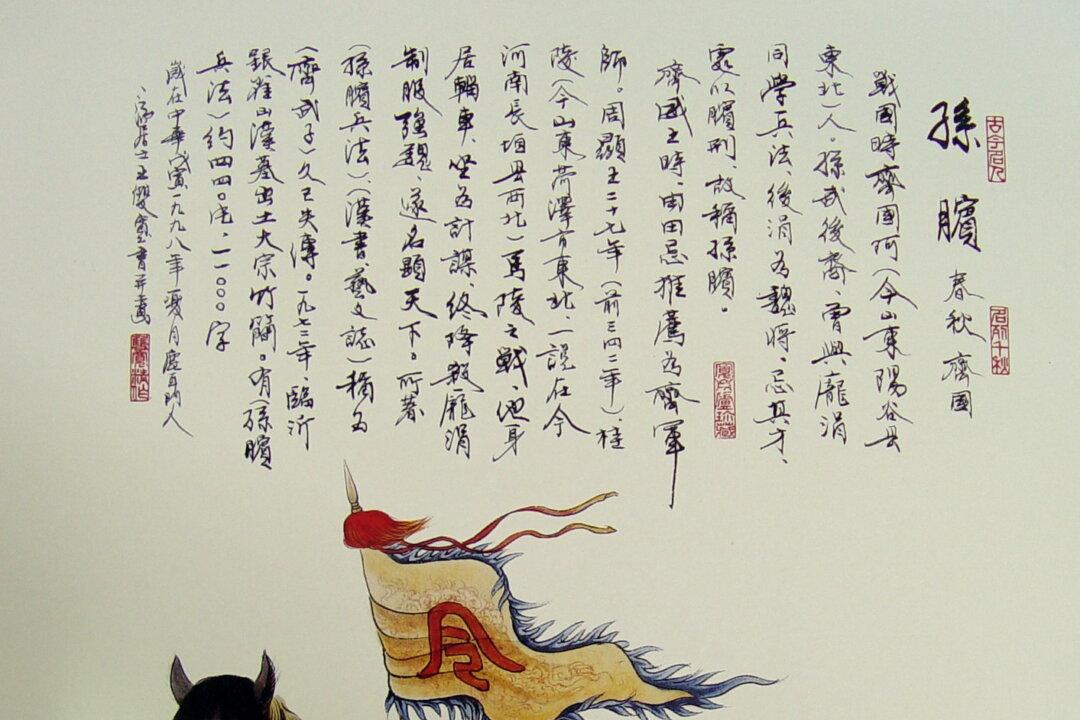Sun Zi’s timeless primer on strategy, “The Art of War,” has informed the thoughts of many a calculating mind, from generals to CEOs—and it also saved Sun’s own descendant in China, Sun Bin, from the jaws of peril and treachery.
But it was the book’s teachings of wisdom, sincerity, benevolence, courage, and strictness that led the younger Sun through his darkest days of betrayal and humiliation at the hands of Pang Juan, his former sworn brother.
One Master, Two Disciples
From a young age, both Sun and Pang learned from the Taoist hermit, Guiguzi, in an eastern Chinese valley. This master specialized not just in strategy but also in reading fortunes, debate, and personal cultivation.
He had a prophecy about his two disciples: Pang, ever ambitious, needed to be loyal to Sun, and if he failed in this he would meet his end by a thousand arrows.
Pang then went to serve the powerful state of Wei, making a name for himself as an unparalleled general. But he forgot Guiguzi’s prophecy.
Sun Bin Learns From a Hidden Classic
While Pang Juan was out earning fame and glory, Sun Bin had remained with their master in that remote valley. It was only then that Guiguzi revealed that he was in possession of the “Art of War,” the 13-part manual to military strategy that had been written over a hundred years ago by Sun’s ancestor Sun Zi. This text had once been lost, but the old hermit had preserved a copy.





